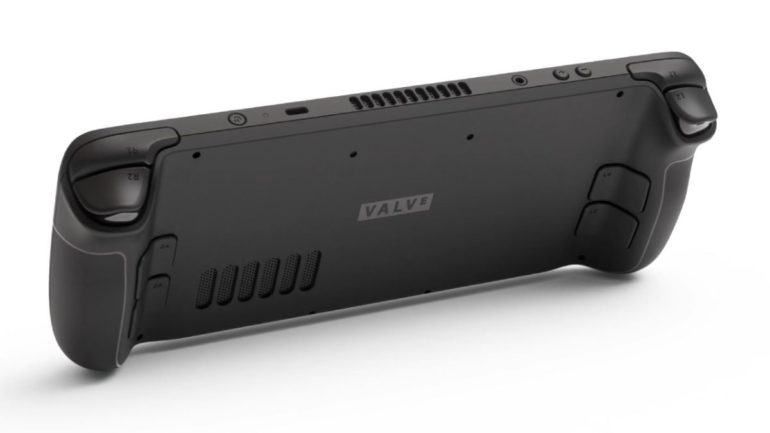The Steam Deck offers the possibility of replacing its storage, at least in theory – although Valve warns against making such a move – and even the base model with an eMMC drive may allow for an M.2 SSD upgrade. That said, there are a lot of other caveats around this even aside from Valve’s aforementioned advice.
This all stems from a Reddit post from someone who directly emailed Gabe Newell at Valve asking if the portable PC would have a user-replaceable SSD, and Valve’s President responded that the Steam Deck features a 2230 M.2 slot.
Obviously we need to be cautious around info floating down from Reddit, but it does appear that the official spec of the Steam Deck has been updated following this info spilling out. That spec now notes: “All models use socketed 2230 m.2 modules (not intended for end-user replacement).”
So ‘all models’ means the entry-level device, too, and this raises the prospect of upgrading the cheapest version’s smaller 64GB eMMC drive with something more capacious. Of course, the presumption is that this eMMC storage is on a board inserted in the M.2 slot, given that all models apparently use ‘socketed modules’ (meaning the eMMC isn’t soldered directly to the motherboard, with the M.2 socket empty – although even if that is the case, an M.2 upgrade could still be feasible).
When it comes to any potential upgrade, though, the problem is the disclaimer from Valve noting that the system drive is “not intended for end-user replacement”, which presumably means that the M.2 socket is buried inside the device in a way that would entail taking it all apart in a warranty-voiding manner (running the risk of breaking the Steam Deck in the process, with no recourse).
Further potential pitfalls
Aside from that danger, there could be other stumbling blocks for those who’ve heard this news and therefore might be thinking about buying the cheapest Steam Deck model with a view to subsequently upgrading the drive.
Firstly, 2230 form-factor M.2 SSDs are thin on the ground and not cheap, and as Tom’s Hardware, which spotted all this, observes, there may be parameters like heat levels with the drives used in the Steam Deck which a replacement may not adhere to – and it’s not difficult to imagine how that might become problematic.
On the software side, as well, there’s the whole issue of the OS being installed on the supplied drive, and how to get that across to the new SSD. No one will really know how these kind of issues will play out until the Steam Deck arrives, and folks start trying to mod the device (and the inevitable teardowns emerge).
From what we can gather here, though, your average owner will want to steer clear of trying any drive upgrade tricks for all the aforementioned reasons, if an upgrade is even viable in the first place.
Today’s best gaming laptop deals



